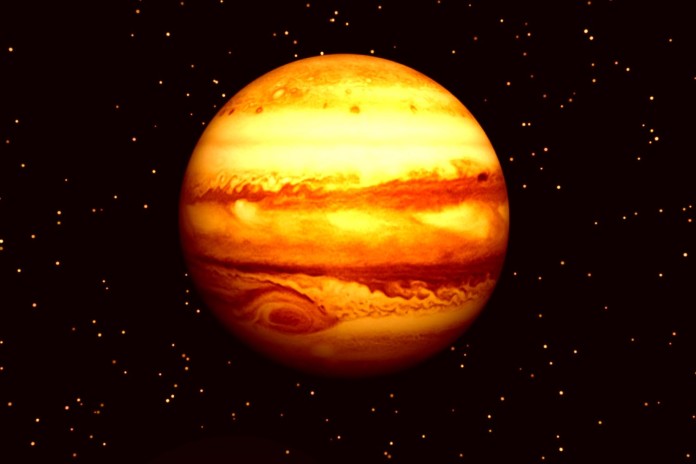
NASA spacecraft Juno is expected to reach Jupiter on July 4, 2016. There may be a bit of ironic symbolism at work here. Will Jupiter offer answers to alien life on another planet? Or will it serve up a hospitable place for earthlings to escape to after earth is completely depleted of all natural resources and livable elements? Despite the explorative motives behind the Jupiter mission, if successful, it will be only the second lengthy mission to the planet. But Juno’s endeavor may come to a colliding end, since it is expected to impact the planet in early 2018. Leave it up to NASA to crash a multi-million dollar spacecraft into a planet.
A Billion Dollar NASA Program
Juno is one of three probes involved in the NASA New Frontiers program. One of the other probes completed a Pluto flyby in 2015, and the other is slotted for an asteroid mission in 2020. New Frontiers is a $1 billion program, which is quite a sum for missions to Jupiter, Pluto, and an asteroid. But in retrospect, they have spent roughly $2.5 billion on Mars rover Curiosity to drive around, collect data and take selfies. Kind of like a really expensive public relations plan that connects the world of social media users to the new “hip millennial” NASA.
Searching for Alien Life, or Planning Colonization?
Once Juno reaches Jupiter, scientists will begin their research. Interestingly, the pressing questions they want to be answered have a “possible existence” ring to them. Does the planet have a core? How much water is there? Why is the weather so stable? How about the magnetic field and plasma of the planet? It really seems that alien exploration may be underway, or Jupiter is simply another candidate to support human life and future colonization.
Alien Life on Jupiter Moon?
The Jupiter moon Europa may be the most likely place in the universe to host alien life, according to a recent study by NASA. However, flybys via the NASA Voyager 2 spacecraft in 1979, and the NASA Galileo spacecraft in the 1990s are all scientists really have to go on. There are signs of an ocean under Europa’s icy surface. And it may prove hospitable for life. NASA has plans for a 2021 mission to the Europa. They are hoping to uncover chemical data that would support a theory of life on the moon. Could this be the next stop for NASA manned missions? There seems to be a wealth of new space stuff happening these days. Is something happening to earth that the public simply is unaware of?

















